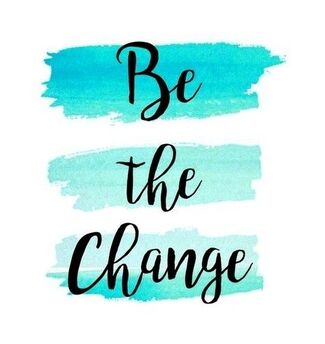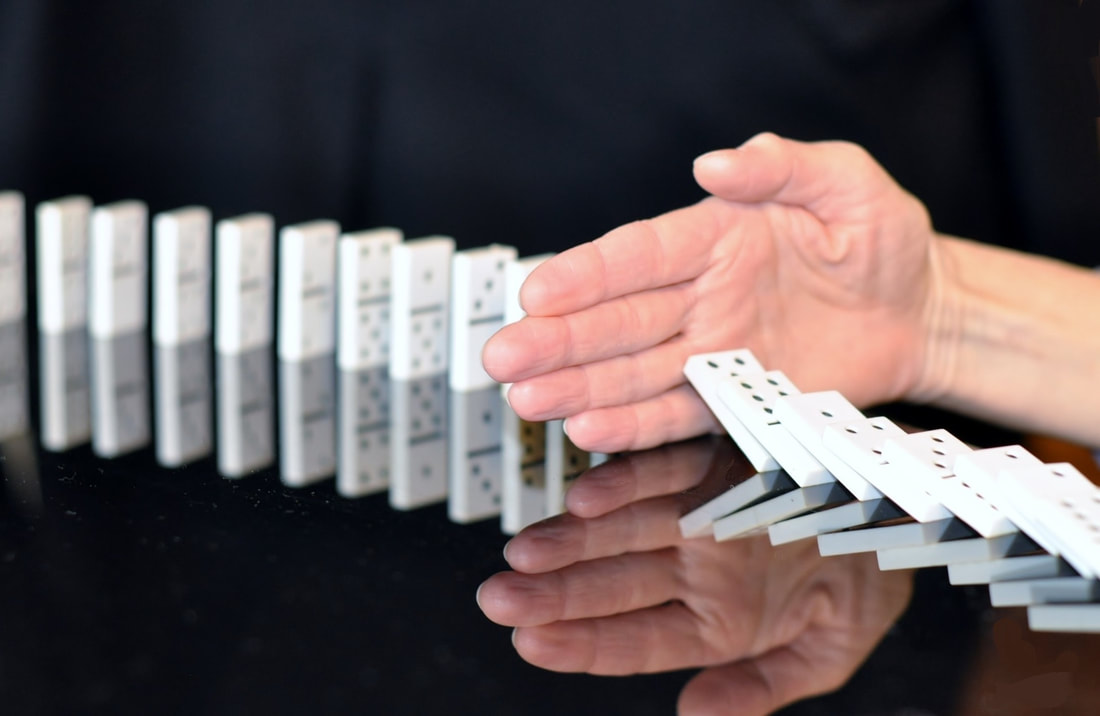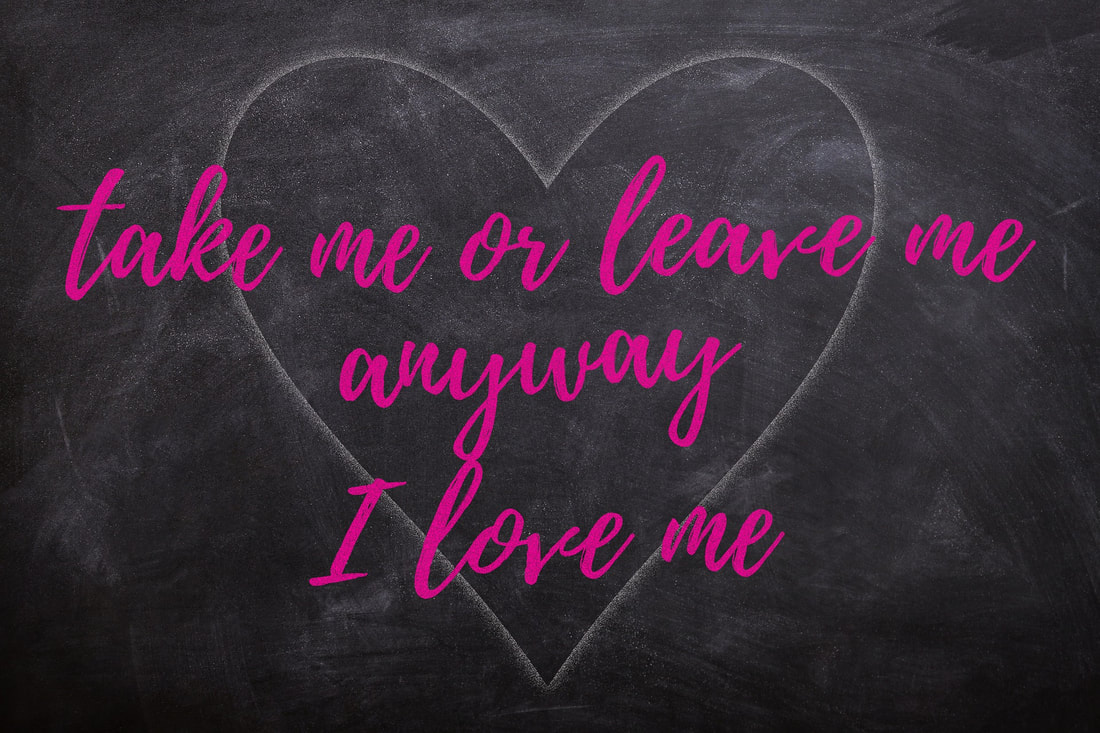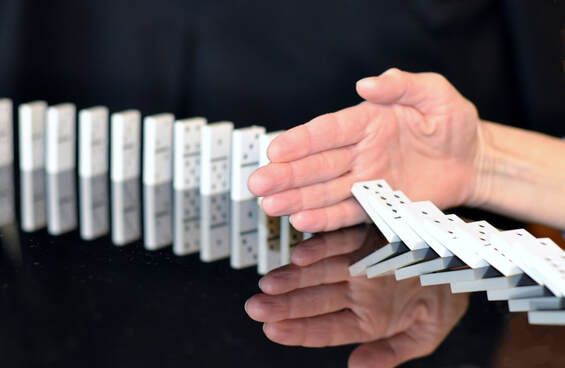|
Here's the thing - if you think you need help, or just someone neutral to talk to, then going to see a therapist is a good thing. There is absolutely nothing shameful about that. In fact, once you overcome your shame and the "what will other people think" concerns, you're already taking the first step towards personal growth and empowerment.
You wouldn't believe how many people, in this day and age, still struggle with shame when they first sit on the couch and start telling their personal story. Many believe that seeing a therapist, or asking for help in general, is a sign of a personal defeat. Some kind of weakness of character. Too many confess they feel like losers because they weren't able to resolve their problems by themselves. Luckily, this feeling soon passes when clients discover that going to a therapist is like going for coffee with a friend. Well, almost. The key difference being, we don't normally drink coffee in sessions, and the therapist is way more objective than your bestie. We see things from a different angle. Also, we have a better understanding in the way people think and react, and why they do it - so we can provide some interpretations and answers to your incessant "why, why, why?". Best friends are usually well-intentioned and try to help the best they can. Unfortunately, they often support us in the "poor me" way of thinking. I frequently say to my clients that seeing a therapist is the same as getting a coach at the gym or a tax adviser to help with taxes. Get help and support from the people who can give it to you. There is absolutely nothing shameful in that! Quite the contrary. People who ask for support are brave and know that they are the ones living their life, hence what other people think or say of it, matters little. People in therapy are those who are seeking a better life for themselves and we can only applaud them for it. While I'm very much in favour of personal responsibility of each individual for their life, I'm also very much in favour of asking for assistance when we need it. Would it sound better to you if you were doing coaching sessions? Training for a marathon with a coach? Well, therapists are coaches of some sort. We help you navigate the troubled waters your life has drifted in and we teach you how to do away with the negative patterns that are preventing you from living genuinely and fully. Not to mention that a problem shared is a problem halved. Some problems are really not as difficult as you believe them to be. You just need someone objective and emotionally uninvolved to help you see the issue from a different perspective. Therapy works, that is a fact. What kind of therapy and which therapists are best? Well, all therapies work, not equally well, but they all work. As for therapists, choose one you feel comfortable sharing your intimate thoughts with. Someone whom you trust and feel like they know what they're doing. In the end, it's you who's doing all the hard work. All the success is yours to have. All you need is a skilled therapist who will know how to guide you to your goal.
1 Comment
Whether you're highly intuitive and attuned to the energies of the world or not, you have surely noticed that change is very much in the air. Many people don't like change and even fear it. It's some kind a collective human trait - we like things to be predictable, stable and constant. We normally regard change as a disruption of our well-established order. Yet, change is inevitable. It is, in fact, the only constant.
Therefore, "be the change you want to see" is not just an empty, meaningless quote, a catchphrase. It is essential for us to obey that rule if we want to avoid feeling overwhelmed by the change that we never wanted in the first place. Observe the environment you're living in and try to figure out where and how it will be changing in the next couple of months or years. Then engage in proper planning so that you can be the change you want to see. You have a lot more control over what is happening in your life than you think! You've just so far never actively engaged in driving the change. Shape the world according to your wishes, to the extent possible. Predict change, implement it, stay on top of it, make it work for you. One of the worst situations is, in my opinion, when we're unprepared for the changes that hit us. Life is already unpredictable enough, so why not focus on things we can predict, steer and control. If we're well prepared, it's much easier to handle even those changes that seriously disrupt our lives. We can then take them as a learning experience instead of as a survival of the fittest test. Ignorance is bliss, sometimes. But more often than not, it is the main force pushing us into the victim mode. Read, learn, observe, listen, imagine, think, brainstorm, get empowered and equipped with information and knowledge, and then prepare for the future. The best way to do it, is to start creating the life you want to live now, in the present moment, all the while taking into account what might happen next. There is a reason why so many toxic and co-dependent relationships include a narcissistic man and a borderline woman. While at first glance these two individuals have very little in common, they share some fundamental characteristics that can be uncovered if we look very deep below the surface.
Both, narcissistic personality disorder and borderline personality disorder are part of the Cluster B in the DSM classification. That by itself indicates that there must be something they have share, even if those qualities are present in fragments. What could they be? Well, they both share an underlying feeling of depression, a strong fear of abandonment and chronic feelings of emptiness. You would never say that narcissists know anything about depression is or that they experience emptiness, yet deep down they do feel depressed and empty as they strongly believe that they are not lovable nor good enough. That is why they need so much admiration and praise from other people. It gives them a sense of existence, of being worthy. Borderlines, too, feel depressed and empty but prefer to fill that void by establishing relationships. They don't seek undivided love and admiration from others, it is what they want to provide. Borderlines can't live without being in a relationship, narcissists can't live without the narcissistic fuel provided by other people. In theory, this would make them a perfect match. Unfortunately, narcissists can't cope with the borderlines' desire for intimacy. This is how it happens: at first, all is great. Borderlines provide narcissists with love, admiration, devotion, which fills the narcissists' void. Since borderlines feel the depression and emptiness of narcissists and know how horrible that feels, they try to make it better. By making it better for them, they make it better for themselves as well. Narcissists on the other hand provide a seemingly stable person on which borderlines think they can rely, as initially, narcissists present a charming, reliable and strong front. There is nothing a narcissist can't do! However, things start to get complicated when borderlines want more intimacy, as the logical next step in their relationship. This is where the fear of abandonment comes into play. They both experience it, borderlines more overtly, narcissists deep down. The more intimacy the borderlines wants, and there can never be enough of it, the more the narcissists start to withdraw, as it gets too much for them. They fear the borderlines might uncover their true nature, the one they are so desperately trying to hide behind the narcissistic mask - the vulnerable, unworthy, unlovable self they believe to be. And should they ever uncover it, they would leave them, which narcissists are trying to avoid. Borderlines, sadly, understand the withdrawal of narcissists are abandonment and will do whatever it takes to prevent it. The power struggle who will leave whom begins, first as a testing phase. Borderlines become obnoxious in their behavior as they test how much narcissists love them. How far can they go before the narcissist leaves? Narcissists withdraw and disappear, only to return, to check whether the borderline is still willing to take them back, because when the relationship was good, their emotional needs were fulfilled completely, even those they had no idea they had. They also feel a rush of positive energy of seeing the borderline crawl for their attention, begging them not to leave. It gives them an immense sense of importance and power. It also frightens them on some level because if this crazy borderline groveling person loves them, there must be something wrong with the narcissist as well, right? See, there is negative mirroring going on in this kind of a relationship. Both partners share the depression, fear of abandonment, desire for being loved and fearing it at the same time, an unstable sense of self that must be provided by the other. Until both resolve the past wounds and script patterns, they will always push all the wrong buttons in each other, which will inevitably lead to hurt, pain and suffering. Therefore, couples' therapy is the best solution for them as they need to understand which painful experiences brought them together in the first place. Let's be honest, many women today live in an abusive relationship and are not even aware of it. They believe that what is happening to them is their fault, that they have deserved such behavior and that anyhow, this is how things are supposed to be in a relationship. Sure, there are men who suffer the same kind of abuse as well, but women are sadly still the most frequent victims of domestic abuse and violence. How can you tell if you're in a toxic relationship?
First, we need to do away with a myth that only women who walk around bruised and battered are in an abusive relationship. That is most certainly not true. Yes, a large majority of people would recognize a victim of abuse in a woman who has a black eye, a few stitches above her eyebrow, a broken bone or any other sign of physical violence. You know, the women who out of fear claim that they were clumsy and hit their head on the door or fell down the stairs. This kind of abuse is unfortunately all too prominent behind closed door, and it is the most visible demonstration of abuse. Yet, there are other types of more subtle abuse that are not detectable at first glance. Would you say that you have ever suffered from psychological violence from your partner? Are you sure you haven't? Because it usually starts quite subtly and unnoticed. Every time your partner puts you down, insults you, yells at you, disrespects you, says hurtful things about you, undermines your self-confidence, criticizes how you look, and what you say or think, humiliates you in front of your friends and colleagues, disregards your wishes and puts the blame for everything, including his behavior, on you and you alone, he is being abusive. Often, these acts of violence take place on a continuous basis, and you somehow get accustomed to them, thinking it must be your fault that your partner is behaving towards you in such a horrible way. You try to find excuses for his behavior. Psychological violence, mind games, blackmailing - all are a sign of violence. Physical violence is just the culmination of all that had previously been going on and you haven't noticed or reacted to it. Of course, there are men who beat their partners black and blue because they feel like it, and don't even bother with psychological torture beforehand. But then there are others who are so vicious and sadistic, that they prefer torturing their partners with insidious psycho mind games, and only resort to physical violence when they completely lose it. Many women develop Stockholm syndrome and refuse to leave the abusive partner. Many are afraid to leave for fear of retaliation or because they are financially dependent on their partners. Too many are brainwashed into believing they're not worth anything and will fail if they ever tried to leave. Unfortunately, the system still doesn't offer the support women need when they want to leave an abusive relationship. However, that is not a good enough reason not to leave it. Abuse only escalates with time and with each passing day your self-confidence, self-respect and the feeling of self-worth are eroded. Act in time, before you're exposed to physical violence as well. Trust that you have the strength to start over and believe that you're entitled to a loving relationship. Nobody should tolerate abuse and violence. Loving yourself and being good enough are two concepts that are extremely difficult to define, let alone define in a precise manner. Yet these two notions are frequently subject of discussion in therapy, and we all put a lot of energy, thought and effort in trying to define them and implement them in practice. So, how should we go about it?
A good starting point, perhaps, could be to do a short, 15-minute, meditation with the intention of finding out what is it that we so dislike about ourselves. Therefore, sit down in a comfortable position, take a deep breath in and out, several times, then let the thoughts come up. Don't try to analyze them or fight them, just observe them and notice the sensations in your body. It's quite likely that you will feel shame, disgust, even hatred towards yourself, quite possibly for no particular reason. If you are one of those people who love themselves and have zero problems with negative self-image, then this exercise will not have the same effect on you. But to go back to the negative feelings. This is where you should start your journey of finding self-love. Let's try to take it step by step. Step no. 1: do the brief meditation exercise, which you can, of course, prolong for as long as you want to. Acknowledging that you dislike yourself is a huge step forward. Without it, it is difficult to get to the place of self-love. Step no. 2: step in front of the mirror and negate all the negative thoughts and feelings that you have experienced during meditation. If you think you're stupid and ugly, say to yourself that you are smart and pretty. Continue doing this exercise until you believe in what you're saying. It might also help to do another exercise before this one - stare at yourself in the mirror and smile. You don't have to burst in an uproarious laughter. It suffices to have the corners of your mouth turned upwards. Step no. 3: the next time you're thinking about yourself or seeing yourself in a mirror, think only positive thoughts. Focus on your strengths and positive qualities, no matter how insignificant you think they are. For example, "My hair looks nice today." Or "I've been a truly loyal and reliable friend." Or even "This is the best coffee I've made in a long time." Step no. 4: when you're comfortable in highlighting your positive aspects, you can start analyzing the negative thoughts that come up. Try to figure out where they're coming from. More specifically, from whom! It is very likely that the negative image you hold of yourself is an introject of someone else's negative opinion of you. Step no. 5: know that you are good enough even if you have some negative qualities. We all have them. Try to minimize their expression and do your best to boost the expression of positive qualities. You will start loving yourself as soon as you accept your shadow side, your negative side. When you stop fearing that other people might discover all the "negatives" about you, you will stop feeling shame. Embrace your personality, all of it. Admit you have flaws, like everyone else. Minimize the less pleasant aspects of your behaviour and pledge to change them if they bother you. Change is the only constant thing in life, so even if you're currently not in love with yourself, know that it, too, can change soon. Just focus on the positive! You can do it! One of the most common issues we deal with in therapy is how to set boundaries. More specifically, how to prevent other people from crossing the boundaries of your privacy or your red lines, and how to prevent them from interfering in your life when it is absolutely no business of theirs to do so.
Surely you have already been subject to your friends or the proverbial mother-in-law meddling in your life and suggesting what you should do and how. Well, sometimes those "suggestions" seem more like orders which you find difficult to counter, even though you absolutely disagree with them. Why is it so? Most likely because you haven't been taught how to set proper boundaries, or limits if you wish. Perhaps you have no idea what boundaries are. There are certain lines that shouldn't be crossed in life, especially when they concern the personal, private life, and the choices of individuals that do no harm to anyone. Though admittedly, your choices might have a negative impact on other people's personal agenda. But then again, that's their problem, not yours, no matter how hard they try to guilt-trip you into believing you're a horrible person when you refuse to follow their plans. The first thing you need to learn in the area of boundary-setting is how to say "no". Such a simple word that many 2-year-olds master without any problems at all, yet so many adults struggle with. Have you ever practiced saying no in front of the mirror? Try it, as it might give you a clue as to how decisive and determined you appear when telling someone you won't do something you dislike. Once you master saying no, you can move on to setting boundaries in other areas of your life that you deem relevant. There is one thing you should be aware, though. Namely, if you set boundaries and then let people cross them as they please, your credibility will be undermined, and nobody will take your limits seriously. Therefore, start setting boundaries in those areas where opposition to them is less likely or, at least, is less likely to lead to a conflict. Practice makes perfect. You need to understand that people will be confused with your decisive stance if you had never stood up for yourself and for what you believe is important. They might even feel offended or upset, but that's for them to deal with. Of course, even those who have lots of experience in setting and sticking to the boundaries, waver from time to time. However, that doesn't prevent them from continuing to uphold the red lines, even though on occasion someone manages to cross them briefly. What matters is that you remain firm and unapologetic when defending what you believe is important to you. If you don't like your friends dictating your life choices, tell them so, politely. If you don't want your mother to raise your children in a way that is not in line with your values and beliefs, tell her to stop. If your boss is pestering you, stop him. There are always ways to prevent and stop unwanted behaviour. If your colleagues are gossiping about you, let them know you're aware of it and take action when you consider they have gone too far. So many things in life happen because we keep quiet, suffer in silence and wait for things to pass or change. They rarely do! Things change when we make the change. Speak up and don't feel bad or guilty about it. Remember, no means no. However, don't take the boundary-setting exercise as a carte blanche to be rude, selfish, aggressive and the like. It's all about finding proper balance. Whenever in doubt, trust your gut feeling. It is rarely wrong. Ending a relationship is never easy, no matter how impossible and frustrating it was. Many people come to therapy to find an answer to the question - should I stay, or should I go? Sadly, therapists can never provide a definitive reply as each and every one must decide for themselves. However, there are some tips that could make your decision easier.
One of the most frequent reasons people start to think about leaving is betrayal. Once one of the partners cheats, the other one is left wondering whether the relationship is still something worth investing in. Betrayal is also one of the most difficult issues to overcome as it undermines one of the fundamentals of a good relationship - trust. If cheating is a one-off thing that happened in specific circumstances, then I would say it is still worth considering staying with a partner and working on how to regain trust and make the relationship stronger. If it is a regular occurrence, then I would certainly leave. Especially if you value loyalty and faithfulness. You know what they say, "once a cheater, always a cheater". Another reason why splitting up is brought into consideration is violence of different types. Violence is where I draw the line. Even more strictly than with cheating. If you're exposed to any kind of violence, especially physical violence, there's not much to reflect upon, really. You pack your bags and leave, or you kick your partner out the door. Sometimes you and your partner simply grow apart. This applies to long-term relationships in particular. If you feel like your relationship is no longer in line with your values, interests, needs and desires, you have the legitimate right to leave. But before you do, assess how you contributed to the relationship getting into a dead-end. Perhaps your partner too would like to go in the same personal growth direction as you, but doesn't know how to go about it. If you feel bored in your relationship, or suddenly start getting frustrated for silly reasons, it might be time to take a look in the mirror and check whether you're projecting your dissatisfaction with yourself onto the relationship. It often happens that we project or transfer our grievances about XYZ onto our partners and blame the relationship for our misery. Should you fall madly in love with someone else, well, tread with caution. Everything that sparkles isn't gold. The shiny, sparkling and exciting new partner might not be as fabulous as you imagine them to be. Also, if you've had a couple of relationships under your belt, you know when you're just smitten with someone and when you're developing real, deeper feelings. One last advice - when you know that leaving is the right option for you, you feel it in your gut. Sure, it helps if someone else whose opinion you value confirms it, but... trust yourself first and foremost as it is you who will have to live with the decision you make. And remember, you can always take a new decision if the last one turns out to be a disaster. Take responsibility for your life and make the most of it! Are you one of those people who eat only to survive or are you one of those who profoundly enjoy food? How would you qualify your attitude to food and eating - is it healthy, unhealthy, addictive? Is food your escape, your comfort, your punishment? Have you ever even noticed how you eat or, what you eat and when?
There is probably something unique to each of us when it comes to our eating patterns and habits. Surely, you have had ample opportunity to observe that during December festivities when eating and drinking were in excess. Some people seem to be constantly on a diet, yet never manage to get to their ideal weight. Others overly indulge in large quantities of unhealthy food and alcohol. There are even some who almost seem to enjoy in the self-inflicted torture of vehemently rejecting any food intake. A few lonely souls on this planet believe food is their only friend. We could say that many people have a rather unhealthy relationship with food. But what does that say about them? The thing with food is that our troublesome attitude to it can quickly turn into an obsession and even more rapidly develop into an eating disorder. Various types of eating disorders exist, and the list of new ones is growing. What they all have in common, though, is a deep dissatisfaction, suffering even, of the person affected by them. Very often, the unhappiness with the body is but a cover for a deeper issue troubling them. Sure, it all starts out as a desire to lose weight or become more muscular, more toned, prettier. However, the real reason for all the dieting is hiding beneath the suppressed needs and desires of which the person might not even be aware of. Initially, when results are slowly showing, people are exalted and feel worthy again. Alas, the feeling never lasts long and the frustration of having to give up on something they love starts creeping in. Many discover that despite attaining the goal their overall satisfaction with life and themselves is still at an all-time low. Why? Because almost always, eating disorders are related to the feeling of being in control. People who feel like their life is spinning out of control, or who are frustrated by something that is beyond their power, start focusing on food because it's the only thing they still have some say over. Or so they believe, as food soon takes control over them. Overeaters often try to suppress their negative emotions and the feelings of worthlessness by stuffing themselves with lots of unhealthy food. For a moment they find comfort and solace in it. Sometimes, overeating is their cry for help, and they hope someone will notice them suffering and come to their rescue. Those who don't have an eating disorder, yet are extremely strict and rigid about their eating, frequently don't know how to enjoy life. They seem to be punishing themselves all the time without knowing it. To them, life is work and no play. They believe enjoying a good meal over a fun dinner with friends is not allowed as they associate life with rigidity, sacrifices and pain. How about those who seem to enjoy food and wine almost too much? Well, they tend to consider themselves above all others. At least on the surface. Beneath it all, they feel like frauds and fear that someone might unveil the embarrassing truth about them. They act as if rules and limitations don't apply to them. Sadly, their debauchery often masks the underlying depression they can't seem to shake off. These bon vivants give the impression of being masters of their life. Deep down, though, they too are unhappy with themselves. Frequently, they seem to compensate the lack of professional, personal or relational success with their larger-than-life attitude. And what better way to demonstrate it than sitting at the table and eat life with a big spoon! Therefore, they need to ostentatiously show to everyone that the world is their oyster. Of course, as always, these are but some possible reasons as to why people act the way they do at the table. Take it as food for thought and try to notice for yourself what kind of eating patterns you engage in and when. It just might help you get to the bottom of what's really eating you up. Letting go is something most people are incapable of doing. Hence, they get stuck in the past. The more they are stuck in the past, the more they start to glorify it, even if the current perception has very little to do with what had happened, or how it felt.
It seems that letting go of a failed relationship is one of the most difficult things to do. Why? For a variety of reasons. Perhaps the person was the love of your life, and you believe that you will never love like that again. Perhaps the person died, and you have regrets that you hadn't told them everything you think you should have. Maybe your last conversation ended badly, in an argument or with harsh words being said, and now you feel bad that you no longer have the possibility to make amends. Or it could be that you're so blindly in love with someone who is out of reach that you prefer to live in a fantasy than face the reality of that person not giving a damn about you. Whatever the reason, the fact remains that you are stuck in your fantasy or illusion of "could have, should have, would have." While you're living in the past, you're missing out on the present. You aren't opening yourself up to new possibilities. You're denying yourself the chance of having a meaningful relationship with someone new. You're closing the door to new kind of happiness. Sometimes this fear of letting go is a defense mechanism or a self-punishment. You believe that you're incapable of creating a new life for yourself or that you're not worthy enough to deserve happiness, or you're just afraid of being hurt again. Maybe you think your moving on would be a betrayal of what you had with that special person. While these are to some extent understandable reasons or excuses not to move on, in the end they hamper your progress and prevent you from living your life fully. Releasing and letting go isn't easy, but it is much better to be in a position where the releasing and letting go is a process controlled by you. Imagine how it would feel if you were on the receiving end of it? Therefore, be brave, take heart, believe in yourself, and trust in life to present you with new opportunities. Release and let go of whoever is holding you back. Nothing quite like the present moment to do that! Taking responsibility is of key importance when it comes to personal growth. That is one of the first lessons people learn when they come to therapy. What about you? Have you ever caught yourself denying and suppressing your needs and wants as you strived to please someone else? Have you noticed how your sense of self and self-image fluctuate, depending on what other people think about you? Would you say that you are an emotionally independent person or are you an emotionally dependent people pleaser? If the latter, then you are probably familiar with the sense of dread and fear that envelops you when you consider that other people will not accept you or love you if you showed your true self or stated your opinion.
Have you ever wondered, though, what would happen if you took full responsibility for your life and stood by your decisions, even if things did not go like you expected them to? Namely, taking responsibility for how we feel, act and think is what leads us towards empowerment and personal growth. Otherwise, we quickly fall into the permanent role of a victim to whom life is happening, with all the good and, especially, all the bad that it brings along. So long as we stay stuck in the victim role, we remain blinded by it, and we only focus on why we are in the unfortunate position we find ourselves in, and who is to be blamed for it. We then continue to play this role in all areas of our lives and thus continue slipping down the spiral of self-sorrow and helplessness, for so long till we collapse in a corner and cry like babies, wondering if life is really nothing but suffering. It is not! Life is full of opportunities if we are brave enough to take advantage of them. The first step towards true empowerment is made when we take responsibility for our lives. When we are emotionally dependent on others for validation, when our sense of self-worth depends on other people’s opinion, we continue to engage in dependent relationships, hence preventing ourselves to live our lives as we please. We all have flaws, we all make mistakes, we all experience fear and shame, we all commit something incredibly stupid from time to time. But it does not mean the world comes to an end because of it. When we take responsibility for ourselves and our actions, we can get through turbulent times much easier because we know that if we managed to get ourselves in trouble, we also have the capacity to get ourselves out of trouble. When we assume responsibility, we can learn from our mistakes, and we do not have to look for someone to blame for them. When we integrate that we are the ones dictating how we shall live, we can leave a toxic relationship. We have no problems changing jobs if we feel used. We say no when we do not want to do something. We stop being a puppet in the hands of manipulative people. We start attracting different types of people into our lives. People who are on the same wavelength as we are, who share the same values we do. We only have one life, and it is up to us, whether we will spend it in line with our wishes, principles and values. True, our starting points differ, as do our individual circumstances. However, we are share the desire to lead a beautiful and happy life – whatever that means for each of us. We can never be liked by everyone, that’s life. There will always be people who will find something to comment on. Since we are the ones who have to spend 24/7 with ourselves, it is important that we like who we are. When you start being responsibly for your life, you will also gain greater clarity as to what your life purpose or mission is. Then, you will find peace of mind and peace of heart, which is what matters the most in these difficult times. |
Katarina's Principle:“If we want to change the world, we need to talk about the elephant in the room. That is why I love real people who say what they mean and mean what they say. No fluff, no lies and no pretence.”
Archives
March 2024
Categories |










 RSS Feed
RSS Feed 

